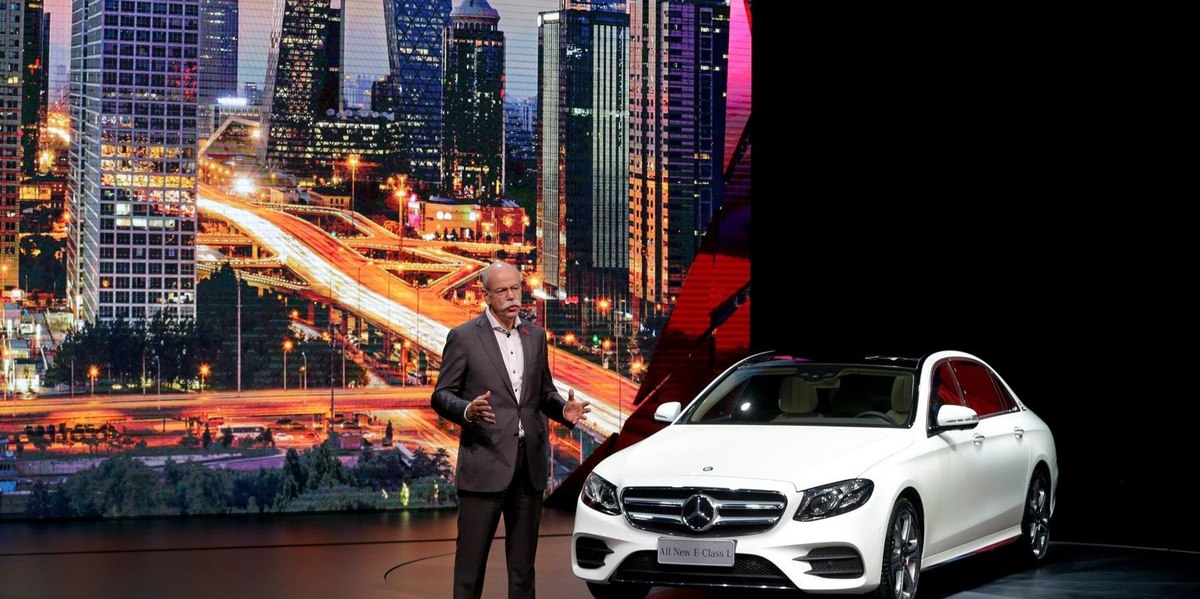The car manufacturer is trying to expand its brand in China butis facing challenges from various quarters
Just over three weeks ago, Rainer Gaertner, a senior executive at Daimler in China, was removed from his post. It followed an incident where he was alleged to have pepper sprayed a bystander and made a racist slur against Chinese people.
The story was heavily covered by traditional Chinese media and also reached a wide audience by going viral across social media, with some users stating they would now not buy the luxury car brand’s products. Although Mr Gaertner’s role was focused on Daimler’s truck and bus business, the company also owns Mercedes, a brand with a higher profile among consumers.
In the week that followed the event, YouGov BrandIndex – which monitors thousands of brands around the world each day and tracks nearly 800 consumer brands in China on a continuous basis – showed the impact on the car manufacturer. It saw Mercedes’s Index score (which measures overall brand health) hit the lowest Index score we have measured for the brand since we started monitoring in China.
However, it is unclear what role, if any, Mr Gaertner’s actions had in this decline given the automotive sector as a whole was already in decline before the incident.
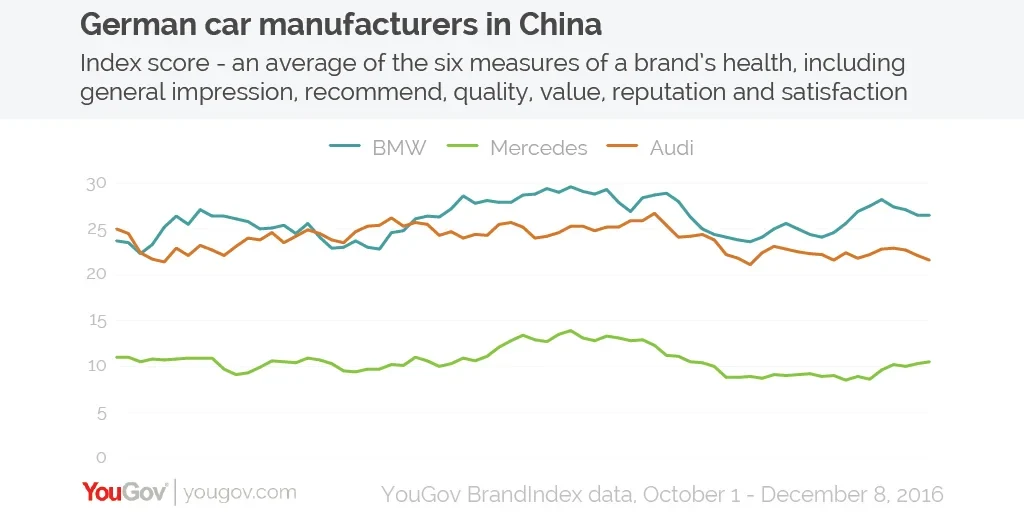
In the weeks following the incident, Mercedes’ BrandIndex Buzz score has risen a little, perhaps due to his swift removal or the news cycle moving on to other stories or a lack of wider association between the brand and parent company Daimler.
Yet, arguably of more long-term concern to Mercedes than any trouble caused by Mr Gaertner is how it lags behind competitors BMW and Audi in the eyes of Chinese consumers. BMW and Audi consistently have higher scores across YouGov BrandIndex metrics. By contrast, Mercedes, hovers between the median score for mass market producers and the median for other producers of luxury vehicles.
In order to address this, Mercedes has been trying to grow its brand in China. It recently began an expansion into wider lifestyle products and services, including the opening of the new upmarket “Mercedes me” building of restaurants and shops in central Beijing. The move indicated the brand’s desire to reach a wider audience in the world’s most populous country.
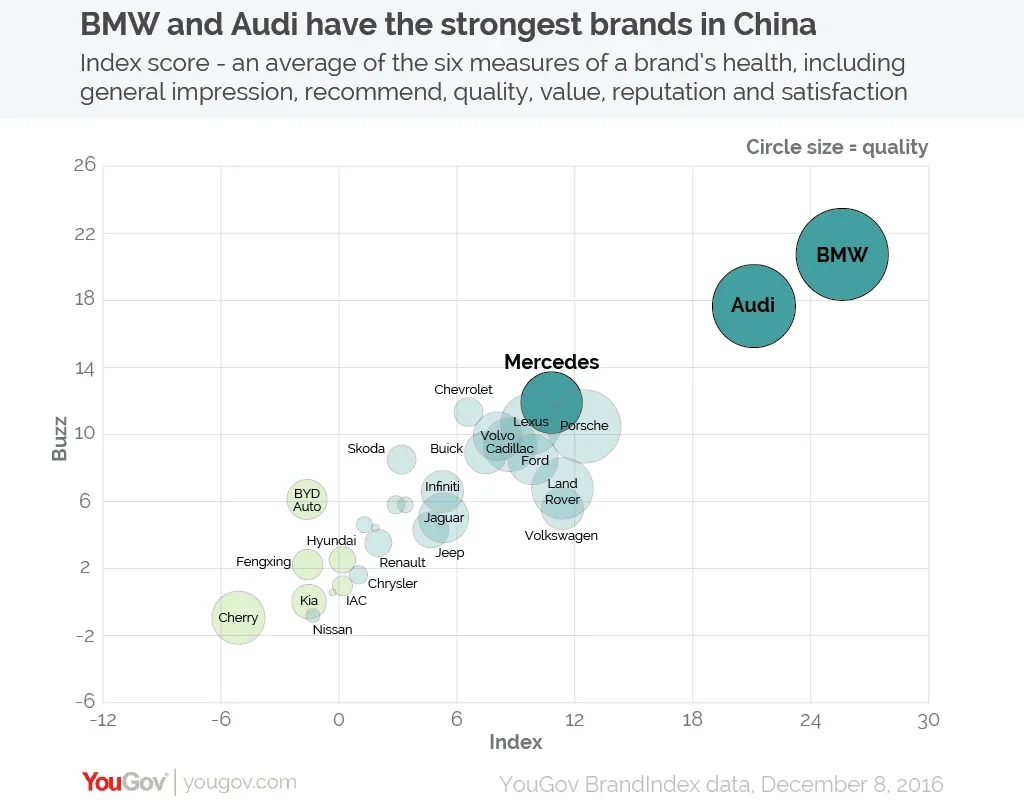
BrandIndex also shows that, while Mercedes outperforms the sector median in six out of seven areas, the difference between BMW and Mercedes is significant across the board.
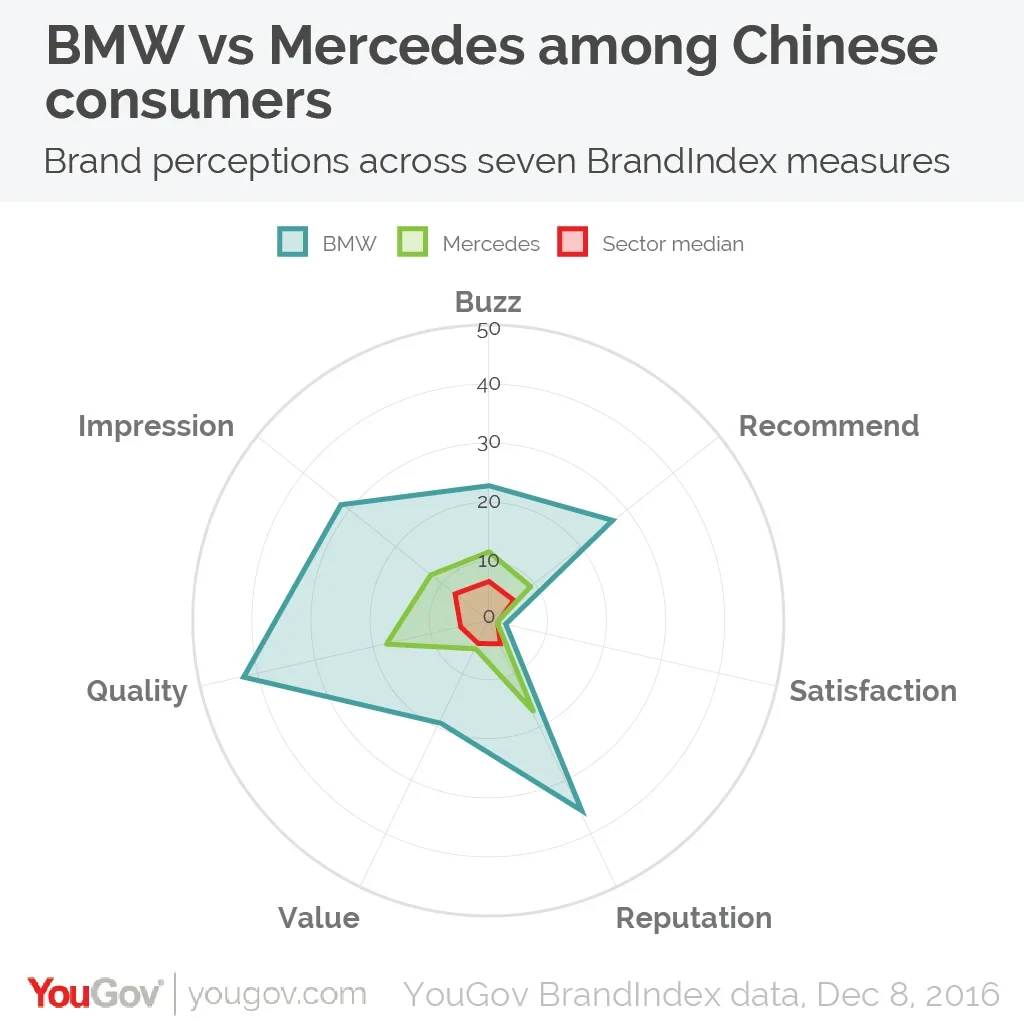
However, BMW does not have everything its own way in the Chinese car market. Despite leading the sector in terms of reputation, quality, buzz and other metrics, consumers say that when it comes to intention to buy they are more likely to go for an Audi over a BMW.
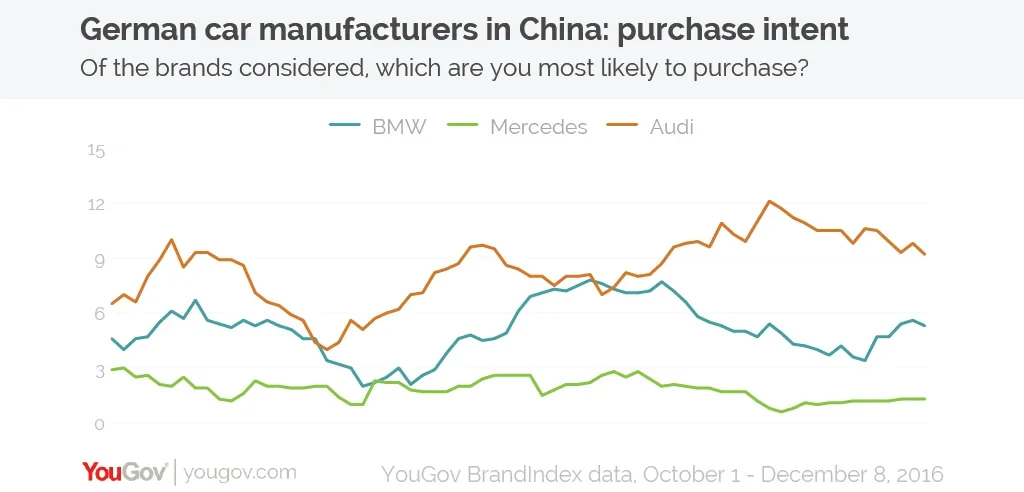
Following the incident in Beijing, all German car makers operating in China – including Volkswagen and Porsche – saw their BrandIndex scores drop. This raised the possibility of there being a knock on effect for other German brands operating in China.
This doesn’t appear to be the case, though. In the two weeks after the incident took place, major German brands such as Siemens and Bosch actually saw their Index scores rise.
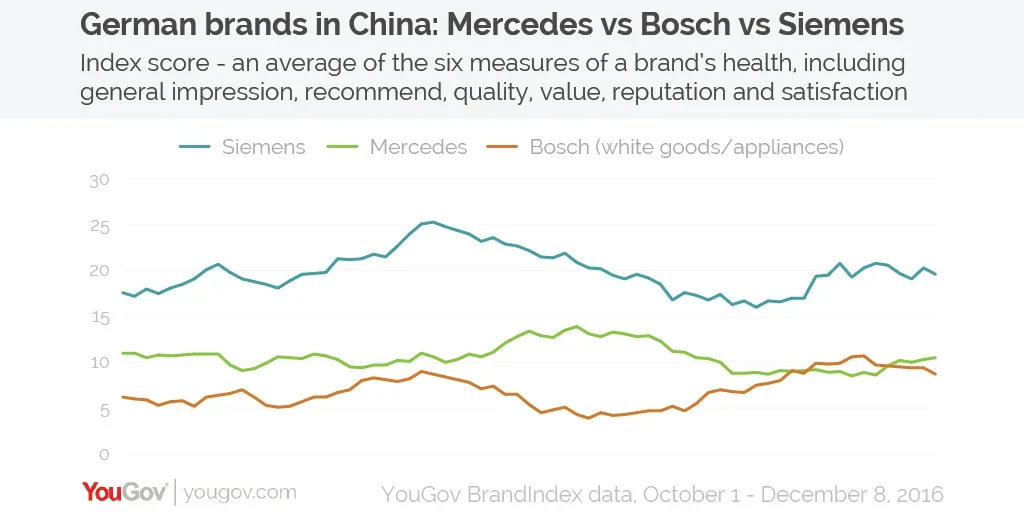
Find out more about YouGov BrandIndex
Image from PA
